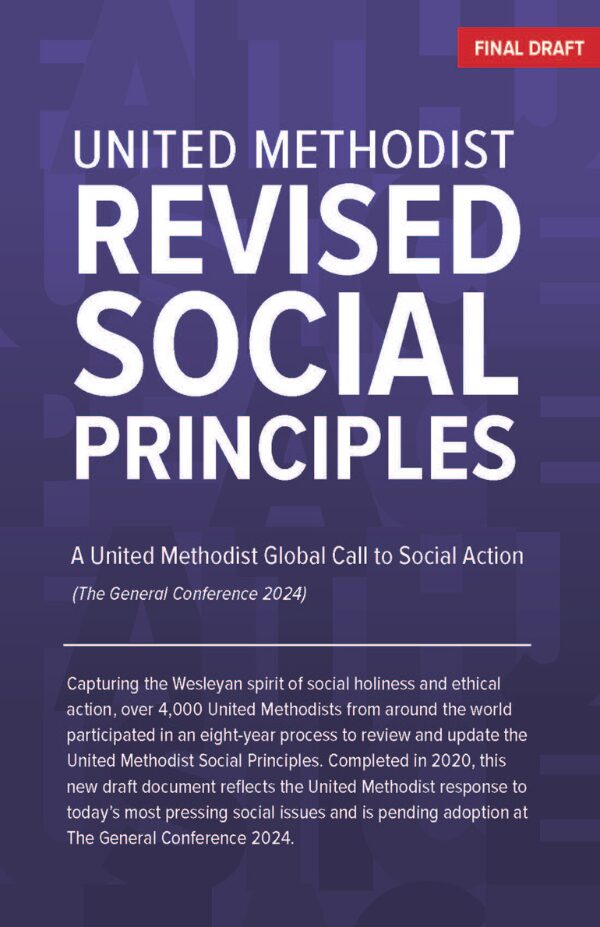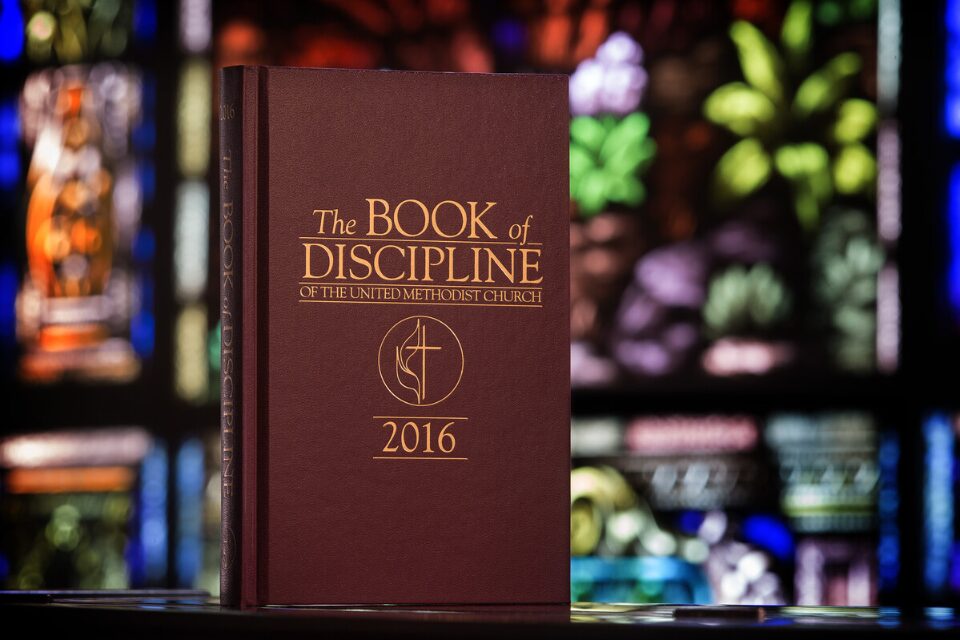The proposed Revised Social Principles coming before General Conference delegates later this month hope to make the denomination’s social teachings more globally relevant.
JOHN E. HARNISH
Michigan Conference Communications
From his deathbed, John Wesley wrote his last letter to William Wilberforce, encouraging him in his fight against slavery: “Unless God has raised you up for this very thing, you will be worn out by the opposition of men and devils. But if God be for you, who can be against you? Are all of them stronger than God? O be not weary of well-doing! Go on, in the name of God and in the power of his might, till even American slavery (the vilest that ever saw the sun) shall vanish away before it” (February 24, 1791).
Long before his death, Wesley was deeply involved not only in the fight against slavery but also in the variety of social issues of his day, including child labor, prison reform, health issues, poverty, and education. For over 200 years, the people called Methodist have carried on his passion for social witness.
The first “Social Creed” of the Methodist Episcopal Church (North) was approved in 1908, followed by similar statements in the Methodist Episcopal Church South, the Methodist Protestant Church, and the Evangelical United Brethren, the precursors of The United Methodist Church. Following the merger in 1968, the current Social Principles were adopted in 1972 and have been amended and reaffirmed at every General Conference since. In 2012, the General Conference called for a major revision, which would integrate biblical and Wesleyan references throughout, be written clearly and concisely, and reflect the worldwide nature of the church.
Since then, over 4,000 United Methodists from the Philippines, Europe, Africa, and the United States have been involved. Eleven writing teams with 52 members prepared three drafts before the General Board of Church and Society approved the final draft, which will be submitted to the General Conference for approval later this month. The Revised Social Principles is one of three major legislative proposals supported by a group of General Conference delegates, including several from the Michigan Conference. Click to learn more.
Rev. Chris Momany, a Michigan United Methodist pastor and former chaplain at Adrian College, is a member of one of the writing teams. His work began in 2012 with a team of 40-50 people, then broke down into smaller teams to deal with sections of the Social Principles. Chris was assigned to the “Economic Community” section, focusing on issues like the impact of globalization, the dignity of work, economic inequities, and serving the common good. “By 2019,” Momany reported, “we had a final draft ready for the 2020 General Conference, but because of COVID-19, that conference was delayed until 2024.”

Rev. Paul Perez is the pastor at Central United Methodist Church in Detroit and co-chair of the Michigan Conference delegation to the General Conference. He also serves as a member of the General Board of Church and Society, the general agency called to manage the revision process. In that role, he has been part of the approval of the recommended revision. Necessary because of the current debate in the church, Paul lifted up the statements on sexual identity and marriage. He said, “The document removes the negative language which was added in 1972 — ‘The United Methodist Church does not condone the practice of homosexuality and considers this practice incompatible with Christian teaching’ — and the restrictions on same-sex marriage. The new statement speaks of human sexuality as a sacred gift and marriage as a ‘sacred, lifelong covenant that brings two people of faith into union with one another and into deeper relationship with God and the religious community.’ ”
The proposed revision includes the General Conference’s voice on issues of the economy and sexuality, as well as climate change, immigration, and substance abuse. Other sections directly align with the Michigan Conference’s mission and vision, including the section on health care as a human right (our recent Advocacy Day topic on mental health care access for all) and the section on condemning racism and calling on congregations and leaders to educate themselves about the root causes of racism (our anti-bias/anti-racism education and our priority to build beloved community). The Social Principles are then supported by a broad range of resolutions speaking to the concerns of United Methodists worldwide. Though not church law, they are understood to be the prayerful and thoughtful effort of many General Conferences to adopt social teachings that express United Methodism’s official positions on complex issues of the day.
Another separate piece of business related to the Revised Social Principles is the proposed regionalization legislation. If passed, it would allow United Methodists in different parts of the world to interpret the Social Principles and specific parts of the Book of Discipline in ways appropriate to their setting and the legal parameters of their nation. For example, polygamy might not be an issue in the United States or Europe, but it is a significant concern for United Methodists in Africa. The Social Principles seek to affirm the basic convictions shared by the whole church, and regionalization would grant flexibility for specific interpretation in different cultures and contexts.
Reflecting on the Revised Social Principles, Rev. Cindy Karges, clergy delegate to General Conference from the Great Plains Conference, praised the cooperative and international process that resulted in the document. “It’s beautifully written,” she said. “It has more input than any other thing we’ve done across the denomination. It really speaks to the global nature of the church. For [the General Board of Church and Society], the hope is that [it] can be a unifying document after all the disaffiliation focus.” Momany said, “It’s good. It isn’t perfect, but we hope it is better than the last one and will inspire the church’s social witness.”
Paul Perez shared the same vision. He hopes the General Conference will “affirm the years of faithful and prayerful work by hundreds of United Methodists from around the world, celebrating the fact that no one nation or culture has the exclusive version of the gospel. Rather, the gospel is shared in many languages and places in many ways.”
Although all United Methodists will not necessarily agree with all the statements, the Revised Social Principles are meant to encourage prayerful and thoughtful reflection on the part of local congregations as together we seek to be faithful to the challenge “to serve the present age, our calling to fulfill. O may it all our powers engage to do our Master’s will” (adapted hymn text by Charles Wesley).
The final draft of the Revised Social Principles is available in 10 different languages, including Korean and Spanish. Download it from this web page. This page also contains other resources, like an FAQ sheet and background information on the document’s revision process.
Last Updated on April 15, 2024


